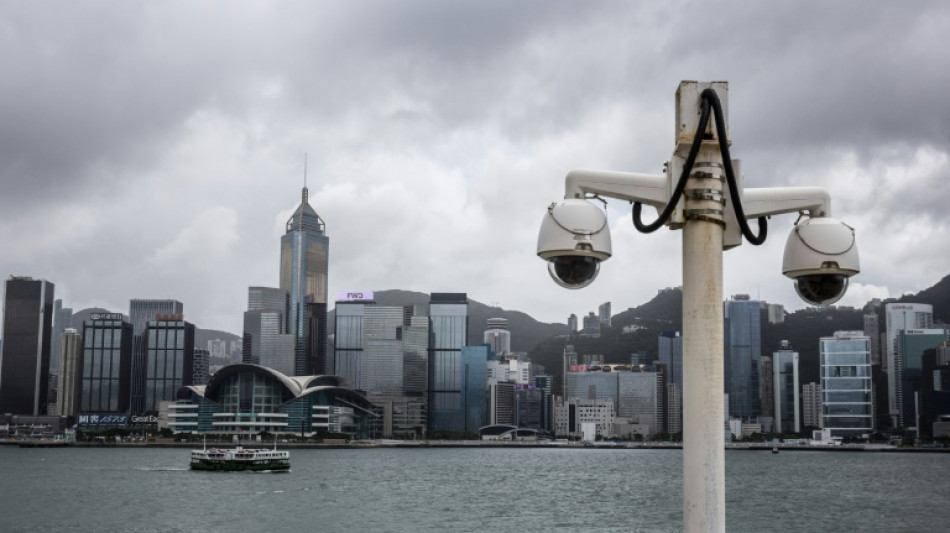
-
 'Great honor': world leaders welcome first US pope
'Great honor': world leaders welcome first US pope
-
Pacquiao to un-retire and fight Barrios for welterweight title: report

-
 Trump unveils UK trade deal, first since tariff blitz
Trump unveils UK trade deal, first since tariff blitz
-
Man Utd one step away from Europa League glory despite horror season

-
 Jeeno shines on greens to grab LPGA lead at Liberty National
Jeeno shines on greens to grab LPGA lead at Liberty National
-
Mitchell fires PGA career-low 61 to grab Truist lead

-
 AI tool uses selfies to predict biological age and cancer survival
AI tool uses selfies to predict biological age and cancer survival
-
Extremely online new pope unafraid to talk politics

-
 Postecoglou hits back as Spurs reach Europa League final
Postecoglou hits back as Spurs reach Europa League final
-
Chelsea ease into Conference League final against Betis

-
 Pope Leo XIV: Soft-spoken American spent decades amid poor in Peru
Pope Leo XIV: Soft-spoken American spent decades amid poor in Peru
-
First US pope shared articles critical of Trump, Vance

-
 'Inexcusable' - NBA champs Boston in trouble after letting big leads slip
'Inexcusable' - NBA champs Boston in trouble after letting big leads slip
-
US automakers blast Trump's UK trade deal

-
 Stocks mostly rise as US-UK unveil trade deal
Stocks mostly rise as US-UK unveil trade deal
-
Trump presses Russia for unconditional 30-day Ukraine ceasefire

-
 Anything but Europa League glory 'means nothing' for Man Utd: Amorim
Anything but Europa League glory 'means nothing' for Man Utd: Amorim
-
'Inexcuseable' - NBA champs Boston in trouble after letting big leads slip

-
 Pope Leo 'fell in love with Peru'and ceviche: Peru bishop
Pope Leo 'fell in love with Peru'and ceviche: Peru bishop
-
Pakistan's T20 cricket league moved to UAE over India conflict
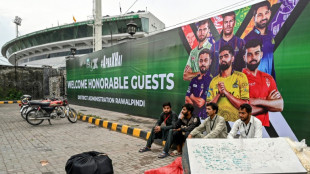
-
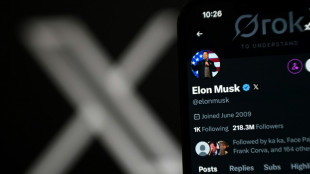 India tells X to block over 8,000 accounts
India tells X to block over 8,000 accounts
-
Germany's Merz tells Trump US remains 'indispensable' friend
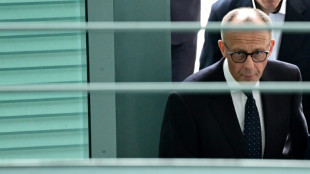
-
 Ex-model testifies in NY court that Weinstein assaulted her as a minor
Ex-model testifies in NY court that Weinstein assaulted her as a minor
-
Chelsea ease past Djurgarden to reach Conference League final

-
 Man Utd crush Athletic Bilbao to set up Spurs Europa League final
Man Utd crush Athletic Bilbao to set up Spurs Europa League final
-
Spurs reach Europa League final to keep Postecoglou's trophy boast alive

-
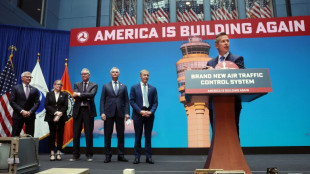 US unveils ambitious air traffic control upgrade
US unveils ambitious air traffic control upgrade
-
US climate agency stops tracking costly natural disasters

-
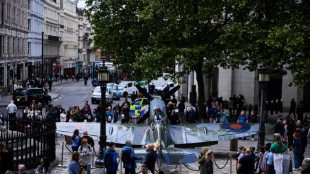 Germany slams Russian 'lies', France warns of war 'spectre' in WWII commemorations
Germany slams Russian 'lies', France warns of war 'spectre' in WWII commemorations
-
'A blessing': US Catholics celebrate first American pope
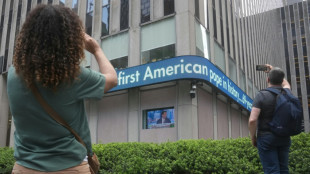
-
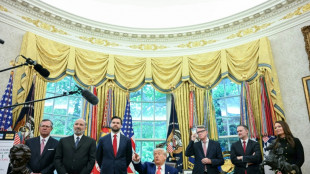 Trump hails 'breakthrough' US-UK trade deal
Trump hails 'breakthrough' US-UK trade deal
-
Cardinals elect first American pope as Robert Francis Prevost becomes Leo XIV

-
 NHL Ducks name Quenneville as coach after probe into sex assault scandal
NHL Ducks name Quenneville as coach after probe into sex assault scandal
-
'Great honor': Leaders welcome Leo, first US pope
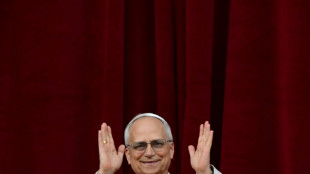
-
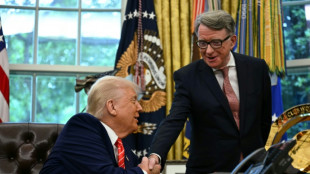 What is in the new US-UK trade deal?
What is in the new US-UK trade deal?
-
MLB Pirates fire Shelton as manager after 12-16 start

-
 Alcaraz '100 percent ready' for return to action in Rome
Alcaraz '100 percent ready' for return to action in Rome
-
Prevost becomes first US pope as Leo XIV

-
 Andy Farrell holds out hope for son Owen after Lions omission
Andy Farrell holds out hope for son Owen after Lions omission
-
Roglic leads deep field of contenders at tricky Giro d'Italia

-
 White smoke signals Catholic Church has new pope
White smoke signals Catholic Church has new pope
-
Bill Gates speeds up giving away fortune, blasts Musk
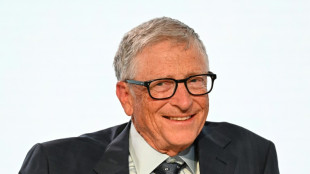
-
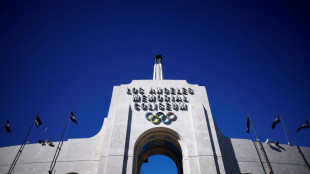 LA Coliseum, SoFi Stadium to share 2028 Olympic opening ceremony
LA Coliseum, SoFi Stadium to share 2028 Olympic opening ceremony
-
Trump unveils 'breakthrough' US-UK trade deal
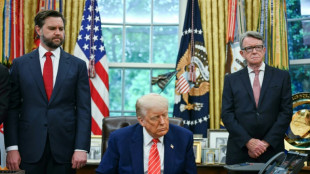
-
 Andy Farrell holds out hope for Owen Farrell after Lions omission
Andy Farrell holds out hope for Owen Farrell after Lions omission
-
Trump calls US Fed chair 'fool' after pause in rate cuts
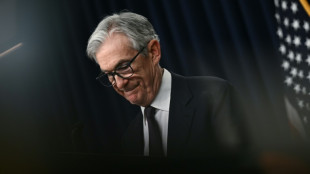
-
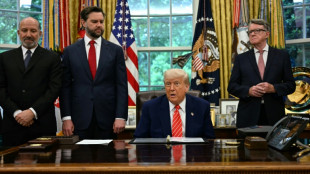 Stocks rise as US-UK unveil trade deal
Stocks rise as US-UK unveil trade deal
-
UN says Israel school closures in east Jerusalem 'assault on children'
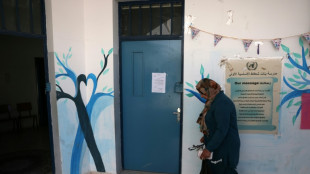
-
 Itoje grateful for 'tremendous honour' of leading Lions in Australia
Itoje grateful for 'tremendous honour' of leading Lions in Australia
-
Cardinals to vote anew for pope after second black smoke
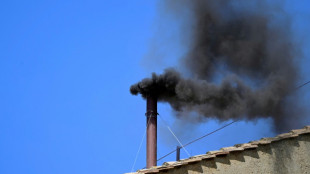

The shadowy messengers delivering threats to Hong Kong civil society
Covert meetings, whispered threats, and mysterious phone calls –- warnings of reprisals by authorities from shadowy messengers are hounding Hong Kong's civil society as China flattens a pro-democracy movement.
Unlike the Chinese mainland, Hong Kong long hosted a vibrant landscape of citizens' groups who cultivated rights advocacy, union mobilisation and civil disobedience as a key fabric of the once-outspoken city.
But a national security law imposed by Beijing in 2020 to snuff out dissent has knee-capped the sector, leaving people fearful that the law's vaguely defined crimes will be used to target their work.
More than 50 civil society groups specialising on issues ranging from labour to education have since announced their closure or been shuttered after national security arrests.
Often the pre-emptive shutdowns came after staff were subjected to a shadowy campaign of threats and intimidation, according to five people AFP spoke to with firsthand knowledge.
The warnings typically arrived via phone calls and messages from so-called "middlemen", who assumed a conversational tone while revealing knowledge of each recipient's personal life. Some came face to face.
Veteran NGO worker Mario -- using a pseudonym due to fears for his safety -- said his colleagues received disconcerting messages from several middlemen last summer.
"They would tell you different stories but at some point the conversation would reach the same conclusion: you must shut down," he told AFP.
A month after first contact, Mario's organisation made the decision to close.
- 'We respect civil society' -
Hong Kong's civil society groups have in recent years been labelled "anti-China elements" by officials and state media.
Beijing has made clear it believes they were a key part of democracy protests that exploded in 2019 with huge rallies and frequent clashes with police.
The national security law's vague language, combined with the middlemen's warnings, suddenly made the threat of lengthy jail terms very real for people like Mario.
"Every normal thing civil society did in the past three decades is now subject to political reprisal," he said.
Shuttered organisations range from the city's largest trade union to Amnesty International, as well as the Hong Kong Alliance -- which used to organise the annual vigil remembering victims of China's Tiananmen Square crackdown in 1989.
Hong Kong's leader Carrie Lam has repeatedly denied that a deliberate campaign targeting organisations is taking place, insisting "we respect civil society".
China's ruling Communist Party and its Liaison Office in Hong Kong have openly accused some groups of violating the law, calling the collapse of these organisations "a choice of their own making".
Both China's Public Security Ministry and its Hong Kong and Macau Affairs Office did not respond to requests for comment from AFP.
The city's Security Bureau and the Committee for Safeguarding National Security also declined to comment on what they called "allegations by individuals".
- New sheriff in town -
Under a "One Country, Two Systems" principle that Beijing agreed to before the 1997 handover by Britain, Hong Kong was allowed to retain key freedoms and autonomy for 50 years.
These included the city being left to police itself using its own laws.
The national security law changed all that, toppling the legal firewall that existed between the financial hub and Beijing.
Among the legislation's many precedent-setting provisions was a clause empowering the mainland's security apparatus to operate openly in Hong Kong.
Days after the law's enactment, mainland security officials requisitioned a hotel for their staff -- unbound by local laws -- as they conducted investigations on perceived threats to China.
The middlemen are regarded as an extension of this new sheriff in town, according to two sources who told AFP they had been contacted directly.
Both described similar face-to-face meetings but asked for key details to be omitted to maintain anonymity.
The meetings were held in a pre-booked private room at public businesses and featured a Cantonese-speaking man claiming to be a mainland security agent.
The conversations stayed largely polite but could flip -- with one source saying the agent he met sounded at times "as if he was interrogating me".
Another said the middleman asked what he thought about disbanding his group, citing various possible security law breaches.
"At first I thought it would be silly to disband when we didn't know what offences we have committed," he told AFP.
"But when he could name a very specific charge, we started to worry."
The messengers possessed personal information, both recalled, dropping details of their relatives and daily habits into conversation.
AFP was not able to independently verify the sources' accounts.
- 'Approach of intimidation' -
The use of middlemen to channel information and deliver political messages is not new.
Beijing's presence in Hong Kong is maintained through the Liaison Office, which has played an increasingly prominent advisory role in recent years -- at times calling in local establishment politicians to be briefed by Chinese officials.
For opposition figures, Beijing preferred using middlemen, according to Ted Hui, a former opposition lawmaker now in Australia.
Such meetings were commonplace -- mainly as intelligence-gathering for authorities' decisions -- until one year before the 2019 protests, he said.
"But after the security law came in, it became an approach of intimidation... So under the table, they can send those middlemen to say things the government cannot openly say."
More than 160 people have been arrested under the national security law so far -- most of them opposition politicians, journalists and rights workers.
Against the backdrop of these detentions, the slow-burn whisper campaign has been an effective tool to shut down organisations critical of the government.
"We are so inexperienced that many of us decided to disband under these threats," said Connie, a rights worker who said she received a call from a stranger giving her a deadline to quit.
Oliver, another rights worker, said he got a text message from someone posing as a "friend" warning he could be arrested.
With so many other groups shuttering and new arrests each month, Oliver felt compelled to take the threat seriously and decided to fold.
"If all those big groups... were not spared, how could you be?"
D.Cunningha--AMWN